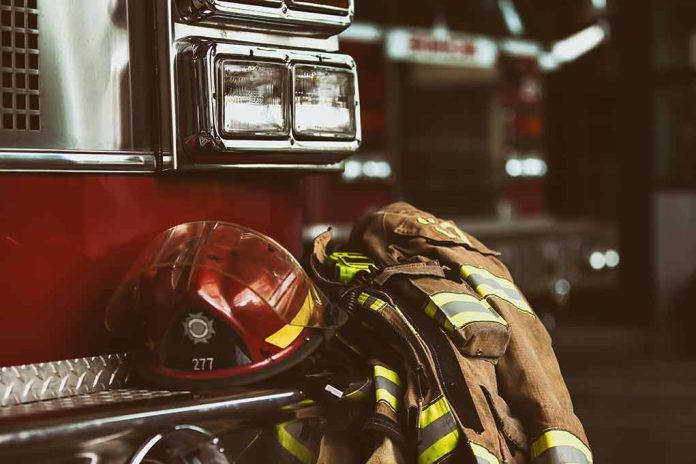
Two former New York City Fire Department chiefs have been arrested on multiple charges of bribery and corruption, shaking the foundations of public trust within the department.
At a Glance
- Two FDNY chiefs, Anthony Saccavino and Brian Cordasco, were arrested on bribery charges.
- Alleged activities occurred from 2021 through 2023.
- Released on $250,000 bail and pleaded not guilty.
- Part of broader federal investigations involving Mayor Eric Adams.
Arrests and Charges
Two former New York City Fire Department chiefs, Anthony Saccavino and Brian Cordasco, were arrested on multiple charges, including bribery, corruption, and making false statements.
These allegations encompass activities between 2021 and 2023, during which the chiefs reportedly accepted tens of thousands of dollars in bribes in exchange for favorable consideration within the department’s fire-safety division.
Saccavino and Cordasco were both released on $250,000 bail and have pleaded not guilty to all charges. The arrests are part of an ongoing federal investigation that has also put a spotlight on Mayor Eric Adams’s administration, exploring possible illegal contributions related to expedited fire safety inspections.
Two former FDNY chiefs were in custody Monday on charges that they solicited tens of thousands of dollars in bribes before ensuring the department's fire-safety division gave preferential treatment to some individuals and companies. https://t.co/1ByqF15kld
— FOX 5 NY (@fox5ny) September 17, 2024
Roles and Allegations
Saccavino and Cordasco held significant positions as chiefs of the Bureau of Fire Prevention, responsible for fire safety regulations throughout New York City. During their tenure, they allegedly exploited their authority to solicit and accept bribes from individuals and businesses seeking expedited approvals and inspections.
“As alleged, Anthony Saccavino and Brian Cordasco abused their authority as chiefs of the FDNY’s Bureau of Fire Prevention to line their pockets in a pay-to-play bribery scheme,” U.S. Attorney for the Southern District of New York Damian Williams said. The indictment reveals the creation of a “VIP lane” that could only be accessed through bribery, a classic example of pay-to-play corruption.
Two former New York City Fire Department (FDNY) chiefs were arrested in connection to "a pay-to-play bribery scheme," according to a newly unsealed indictment.https://t.co/cE9ehPdpiw
— WSBT (@WSBT) September 17, 2024
Implications and Reactions
The wider federal investigation extends to Mayor Eric Adams and his deputies. Mayor Adams has attributed part of the issue to the previous administration under Bill de Blasio, though it is noted that the corruption continued under Adams’s tenure. The inspection backlog manipulated by Saccavino and Cordasco added to the complications, benefiting politically connected developers through an alleged “City Hall List,” which Adams has denied exists.
Fire Commissioner Robert Tucker emphasized the department’s commitment to ethical behavior and cooperation with the ongoing investigation. “Every member of the FDNY takes a sworn oath to conduct themselves honestly and ethically. Anything less will not be tolerated. The department will fully cooperate with an ongoing investigation. Keeping New Yorkers safe remains our top priority,” Tucker stated.
Looking Forward
Saccavino and Cordasco, accused of prioritizing projects for bribes, made false statements to the FBI during interviews in February 2024 to cover up their actions. The scheme involved over 30 projects spanning across New York City and included collaboration with a retired firefighter who facilitated the expediting process for fees.
“They damaged the trust of the overwhelming majority of New York City firefighters who are honest, hardworking public servants,” said James E. Dennehy of the FBI. “The actions of a few should not overshadow the dedication and bravery of the many who wear the badge with pride and honor.”
As the investigation continues, the focus remains on reinforcing integrity within the city’s public services while holding accountable those who breach the public trust.






















